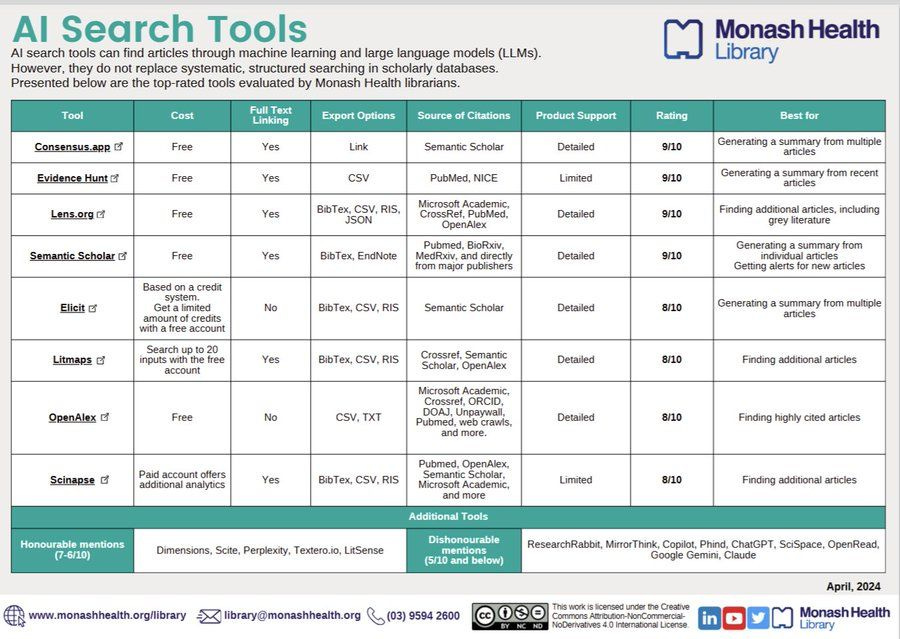PubTech Radar Scan: Issue 30
STM Trends, AI search tools, Oversight, FAIR², AI Discovery Assistant, Scite Assistant, ZAIA, AI supply chain snags, Anara, Hum's vision, Michel Upshall on repositories, ShelfImage, and more...
👉 London-based? Don’t forget our next in-person AI in Publishing Collective meetups on 29 April and 14 May.
News:
The new STM Trends 2029 graphic explores the convergence of AI, societal fragmentation, and the erosion of trust in research. It advocates for new coalitions to rebuild integrity in scholarly communications.
📈Interesting stat: Springer Nature “... recently conducted a pilot study simply requiring authors to explain why any unshared data hadn’t been deposited in a public repository before final acceptance. This request alone raised data-sharing compliance from 51% to 87% in participating journals."
🔍 Monash Health Library has rated AI search tools "….we determined that Consensus, Evidence Hunt, Lens.org, Semantic Scholar were the most useful tools, having a ranking of 9 out of 10. Elicit, Litmaps, OpenAlex & Scinapse closely followed with 8 out of 10". (See also Aaron Tay’s comments on Bluesky)
🦋 Bluesky surpasses X as the preferred platform for academic research sharing, according to an analysis by Digital Science.
🎓 The Verge believes that OpenAI and Anthropic are racing to dominate the higher education space, each launching new tools tailored for university students. While OpenAI offers perks like free ChatGPT Plus access during finals, Anthropic’s Claude leans into Socratic learning to deepen student engagement.
🚀Launches
🕵️♂️ Oversight by Clear Skies. The first comprehensive index of journal integrity. Using machine learning and network analysis, Oversight analyses data from 60M+ papers (since 2016) to detect signs of organised research misconduct. Each journal is assigned a Composite Risk Score, enabling publishers to identify potential integrity risks within their portfolios. By going beyond traditional metrics like publication volume and citation counts, Oversight aims to offer a more nuanced and data-driven perspective on journal quality:
🔢Frontiers introduces FAIR² Data Management, an AI-assisted service designed to improve the structure and accessibility of research data.
🔍 Silverchair & OUP launch the AI Discovery Assistant on Oxford Academic, boosting research with smarter search and AI summaries.
🤖 Clarivate announces "...expansion of its Academic AI Platform, with the aim of helping institutions harness “agentic AI” to accelerate productivity, save time for researchers, students and staff, and engage users..."
👉 Unriddle has changed its name to Anara and will be focusing on researchers: “Anara helps you understand, organize and write scientific documents with AI. ”
🔍 Scite Assistant has launched a powerful new AI model focused on advanced reasoning, significantly improving scientific response accuracy, problem-solving, and information synthesis. It’s currently available for Enterprise users.
🕵️♂️ Springer Nature has launched an AI tool designed to detect irrelevant references
📄 JSTOR has launched Digital Stewardship Services, a comprehensive platform designed to assist libraries and archives in managing, preserving, and sharing their digital collections. The service integrates AI tools for metadata generation, aiming to streamline workflows and enhance discoverability.
🤖 Zendy's new revenue-sharing model leverages its AI assistant, ZAIA, to compensate academic publishers when their paywalled content is cited.
AI-related reads:
🧠 Hum sees itself as the brain & nervous system of modern publishing. Unifying data, harnessing AI, and offering tools like Alchemist Taxonomy, Insight, Search, & Review to streamline the whole affair.
🔖New IBM report reveals that the journey to an AI-powered content supply chain is hitting real-world snags. 🚧 Early adopters are encountering unexpected complexities - from integration snags to scaling issues.
🤖 Il Foglio's bold experiment with a fully AI-generated newspaper insert is facing challenges. Think misspellings, muddled facts, and more meh than marvelous.
📚 Copyrighted books in OpenAI’s training data? Spoiler: Yup (probably). Method = clever.
🧘🏿 In 2025, Gen AI seems less focused on dazzling us with code and more intent on helping us feel a bit more together. Top uses now include therapy, life admin, and finding purpose, while text editing and content polishing have quietly shuffled down the rankings: https://hbr.org/2025/04/how-people-are-really-using-gen-ai-in-2025
Longer reads:
🔖Michel Upshall explores institutional repositories. With machine learning and automation creeping in, are these overlooked engines of open access on the cusp of a quiet revolution?
🔖Jeffrey Robens emphasizes that writing is an integral part of the thinking process for researchers, warning that relying on AI like ChatGPT for writing may hinder idea development and accuracy. I absolutely agree that for more discursive, conceptual work, writing is integral to the thinking process. But for the more formulaic end of research – the "I did X and Y, and got result Z" type papers, I wonder if we should be adapting the structure of papers and automating more? Do we really need every researcher to write another slightly reworded paragraph on why 'wireless sensor networks' are vital just to clear the plagiarism filter?
🔖Haseeb Irfanullah argues that the traditional peer review system has become impersonal and inefficient, plagued by reviewer fatigue and procedural rigidity. He advocates for a transformative overhaul to restore its collaborative essence and adapt to modern challenges. See also 🎧 episode 190 of Everything Hertz, titled "What happens when you pay reviewers?", features hosts Dan Quintana and James Heathers discussing two studies that assess the impact of compensating peer reviewers on the efficiency and quality of academic peer reviews.
And finally…
📚 ☺️ ShelfImage is a lot of fun: shelfimage.co.uk. Snap a photo of your bookshelf and let this clever little tool gently tease out the quirks and curiosities of your reading taste. According to my latest book pile, ShelfImage says:
Your Bookshelf Personality: The Visionary Entrepreneur
This collection screams innovation and self-improvement with a dash of creative culinary experimentation. You're someone who thrives on new ideas and isn't afraid to explore the unknown, whether it's in the realm of AI or sourdough starters.
Some Of The Books We Spotted
Surviving and Thriving in the Age of AI
Ferment from Scratch
Body of Work
The Start-Up of You
AI in Business
Your Personality Traits
Innovative
Curious
Ambitious
Adaptable



